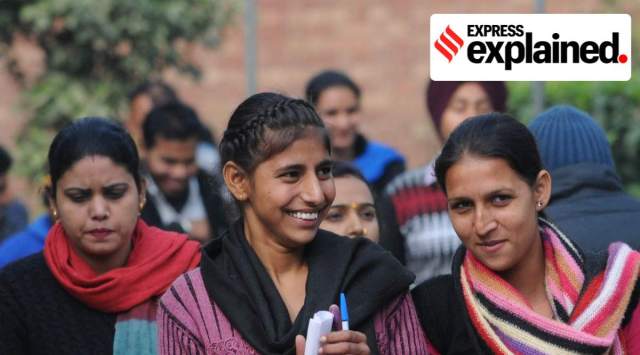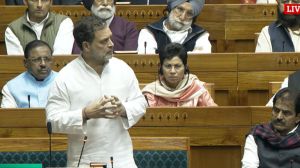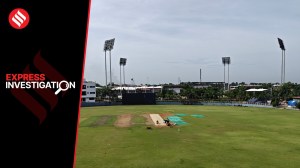His arrest from Thane is the latest breakthrough in the investigation of irregularities in the TET, in which the Pune Police have claimed the marks obtained by more than 7,800 candidates was increased by tampering with the evaluation process.

What is TET and why is it important?
TET is an exam that tests teachers for mathematics, science and language skills and is mandated under the Right to Education (RTE) Act. Every state conducts its own TET and the Maharashtra TET (MAHATET) is conducted by Pune-headquartered Maharashtra State Council of Examination (MSCE) every year.
Maharashtra has been implementing the RTE Act since 2013, so TET has been made compulsory for the appointments of teachers after that year. Any teacher recruited by the government after February 2013 has to compulsorily clear TET to be eligible for a job but those recruited before that cut-off date are exempt from the exam.
Besides existing teachers, all aspiring teachers for schools in Maharashtra—aided, unaided, permanently unaided lower primary (class I to V) and upper primary (class VI to VIII)—must clear TET. Candidates who wish to teach classes I to V have to appear for Paper I and those looking to teach classes VI to VIII have to appear for Paper II. Candidates who aspire to be teachers of classes I to VIII, need to appear for both Paper I and Paper II.
Candidates need to score 60 per cent to clear the exam and the passing certificate is valid for seven years, after which the teachers must take the test again. Teachers are also allowed to take the test in between if they wish to improve their scores.
Any candidate who has not cleared TET is not qualified to be hired as a teacher in any government, private-aided or unaided or self-financed school. A TET passed candidate can apply for a permanent job as a teacher with higher pay and benefits, while non-TET candidates are often forced to take up contractual jobs with a much lower salary.
Story continues below this ad
Is TET tough to clear?
 TET was first conducted on December 15, 2013, whose results were declared in March 2014. More than 3.83 lakh candidates took Paper I and over 2.35 lakh appeared for Paper II. Of these, only 16,285, or about 4.2 per cent, could clear Paper I, while 14,787, or 6.3 per cent, passed Paper II.
TET was first conducted on December 15, 2013, whose results were declared in March 2014. More than 3.83 lakh candidates took Paper I and over 2.35 lakh appeared for Paper II. Of these, only 16,285, or about 4.2 per cent, could clear Paper I, while 14,787, or 6.3 per cent, passed Paper II.
Over the years, lakhs of candidates have taken this test and the passing percentage has remained in single digits every time. In 2017, for example, 7,445 candidates out of 1.7 lakh could clear Paper I while 2,928 of the 1.27 lakh passed Paper II.
In 2019, the last year when the exams were held and results declared, the pass percentage was 5.5 per cent for Paper I and 4.4 per cent for Paper II. Since TET has was mandatory for recruitment of teachers, candidates have been desperate to clear these tests.
Malpractices in TET, other recruitment exams
An examination for the recruitment of Group D employees in Maharashtra’s Public Health Department was held across the state on October 31 last year. The Cyber Crime cell of Pune police received input about a possible paper leak. In the preliminary probe, the police confirmed the paper leak and senior officials from the department were made aware of the matter accordingly.
Story continues below this ad
On November 26, 2021, a First Information Report (FIR) was registered with the Cyber Crime Police Station of Pune City Police in connection to the paper leak. After this starting point in the probe, the police have been untangling the web of corrupt practices by senior government office bearers, touts and private players.
As the police started getting clues about corrupt practices in other exams during the course of their probe, multiple teams were formed to look into each of these cases. Starting with the probe into a paper leak in Group D employees in the Health Department, the police further unearthed the question paper leak in the Maharashtra Housing and Area Development Authority (MHADA) recruitment, the TET exams of 2020 and 2018 and a paper leak in the Group C recruitment process of the Health Department.
So far, these five probes have seen as many as 37 arrests, including those of the present and past chairmen of MSCE, senior government officials, middlemen, private entities contracted for recruitment processes, coaching class owners and candidates. Assets worth Rs 7 crore illegally amassed by these people have also been confiscated.
Latest developments in the probe
Story continues below this ad
After the initial back-to-back arrests, the investigations in these cases slowed a bit because several police personnel probing the case, and even some of the arrested suspects, tested positive for Covid-19. Some key officers even worked from home quarantine during this period. As officers joined back over the last one month, the probe in the case has caught pace once again.
One of the latest findings made public by the police suggests that the marks scored by as many as 7,880 candidates of TETs held in 2018 and 2020 were increased by tampering with the evaluation process, either by manipulating the Optical Mark Recognition System (OMRS) or by directly meddling with the mark entry system.
From a hard disk recovered from one of the key suspects, the police obtained the actual marks scored by the candidates and cross-verified them with those shown in the final results. This analysis gave the police a list of candidates with tampered marks. Police officials have said this number may go up in the coming days and that they would be submitting a list of these candidates to the state government for further action.
Another development in the case includes IAS officer Sushil Khodwekar’s arrest. The probe has revealed Khodwekar was in contact with suspects arrested earlier in the case. In Khodwekar’s remand application to the court, the police have said he went out of the way to appoint already arrested MSCE commissioner Tukaram Supe in spite of his tainted record. It is also alleged that Khodwekar instructed Supe to remove a GA Software company from the list of blacklisted companies. Multiple officer bearers of the company have also been arrested.
Story continues below this ad
What next?
Officials said multiple communications have been sent from the Pune City Police to the state government on how exactly the papers were leaked and exam processes were rigged. Some of these communications include detailed confidential reports.
“One of the key areas of the probe is trying to establish how many of these 7,800 candidates are in the service, how exactly were these many candidates approached through middlemen and what was the role played by private coaching classes, how did the money exchange hands and, how the flaws of the system were exploited and how high up does the corruption go. The Pune Police is in the process of submitting a detailed report to the government about the flaws in the system and also this list of candidates whose marks were tampered with.” said a senior officer, who is part of the probe.
Newsletter | Click to get the day’s best explainers in your inbox
Story continues below this ad
Multiple senior officers overseeing the investigations of the recruitment scams have said that serious lacunae in the recruitment processes were successfully used by the racketeers with the help of insiders.
“There is an urgent need to make these processes technologically robust. Some of the systems still do not have even the basic checks and balances that exist for SSC and HSC examinations. Introduction of biometric system, video surveillance and monitoring and stricter checks with the agency that handles the exam process are the need of the hour. A leaked exam paper takes no time to spread and can result in compromising the entire recruitment process. The honest students are always at the losing end,” one of the senior officers said.
Another officer associated with the probe claimed the investigation was not getting full support from the administration.
“While the investigating agencies will probe the culpability of the persons involved in the case, there is still a bigger question of accountability that remains unanswered. There is a painful lack of response from the elected and elected office bearers towards taking any corrective measures after the series of scams that have been brought to light. Further, there are two entities that keep popping up these probes: private coaching classes and technology providers for these processes. There needs to be a regulatory mechanism for the coaching classes and a better screening process and monitoring of the technology provider companies,” this officer said.









































